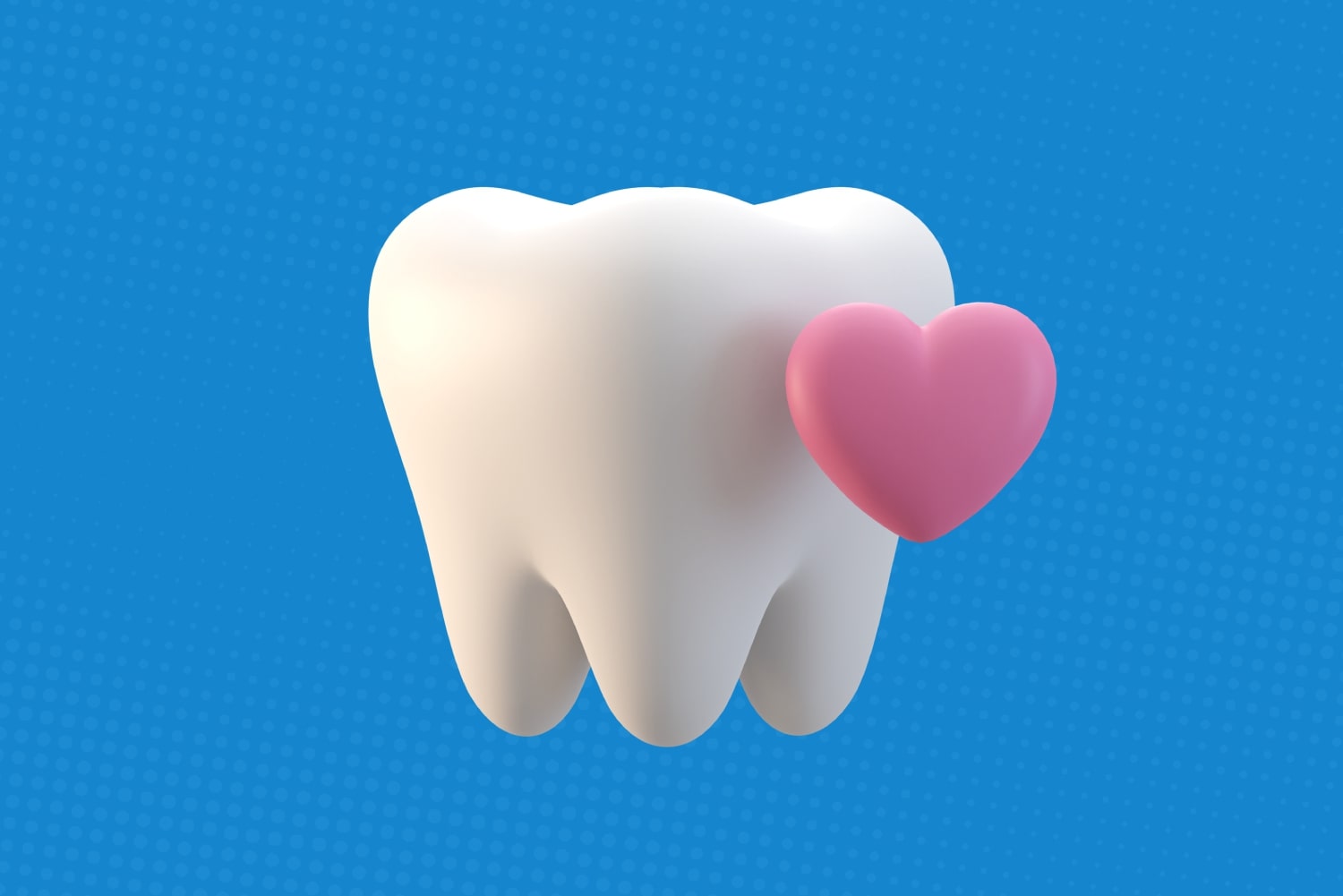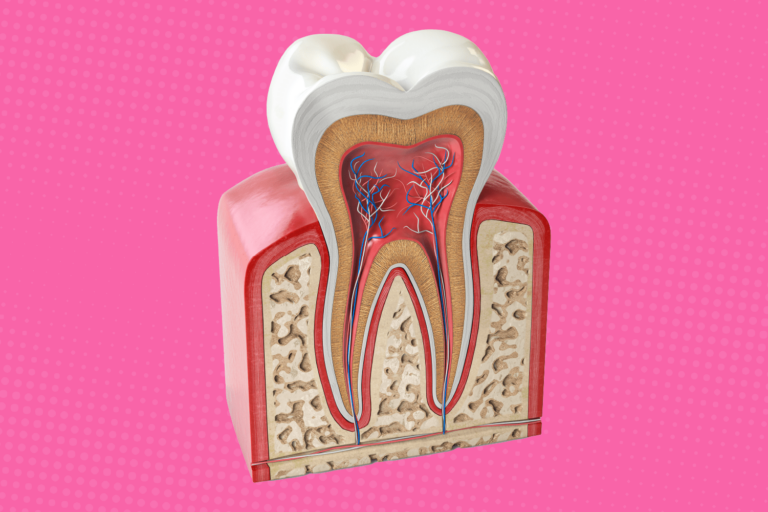
- By: Somos Dental
- December 23, 2020
How Long for Root Canal Healing?
A root canal can save your tooth by removing infection and relieving pain, but it’s important to know what to expect during recovery. Healing takes time, and each person’s experience may differ.
In this article, we’ll explain root canal recovery time, whether pain after the procedure is normal, and tips to ease your discomfort. Plus, we’ll share where to get an affordable root canal treatment without insurance.
Root Canal Recovery Time
The time it takes to recover from a root canal depends on your situation.While many people feel better after just a few days, others may take up to two weeks to heal completely.
Let’s explore the different recovery categories to understand what you might experience.
Category one: Fast recovery (1 to 3 days)
In some cases, patients feel almost normal within the first few days after their root canal. You may still experience mild sensitivity or soreness when chewing, but the worst of the discomfort usually subsides quickly.
Category two: Moderate recovery (4 to 7 days)
For most people, recovery happens gradually over a week. You might feel some soreness and tenderness during this time, especially when eating or touching the treated tooth. Swelling and mild pain may persist but should continue to improve day by day.
Category three: Longer recovery (1 to 2 weeks)
In some cases, especially after a more complex root canal, it can take up to two weeks to fully recover. You might experience lingering tenderness and sensitivity, though it shouldn’t be severe.
If your symptoms don’t improve or worsen after this period, contact your dentist to rule out complications.
Is Pain After a Root Canal Normal?
Yes, experiencing some pain or discomfort after a root canal is completely normal, especially in the first few days. The pain typically results from your body’s natural healing process as it adjusts to the procedure.
Common symptoms during recovery may include:
- Mild pain when chewing or touching the treated tooth.
- Sensitivity to hot or cold foods.
- Tender or swollen gums near the treated area.
These symptoms usually improve over time. However, if you experience severe pain, swelling that won’t go away, or symptoms like fever or pus, it could indicate an infection, and you should contact your dentist immediately.
Tips for relieving pain after a root canal
If you’re feeling discomfort, here are five effective ways to relieve pain and speed up your recovery:
- Take Prescribed Pain Medication: Follow your dentist’s recommendations or take over-the-counter pain relievers like ibuprofen to ease discomfort.
- Apply a Cold Compress: Reduce swelling and numb pain by applying a cold compress to your cheek for 15–20 minutes.
- Avoid Chewing on the Treated Tooth: Let your tooth heal by chewing on the opposite side and sticking to soft foods.
- Rinse with Warm Salt Water: Soothe gums and reduce swelling by rinsing with warm salt water a few times a day.
- Communicate with Your Dentist: If pain persists or worsens, contact your dentist for advice or follow-up care.
What to Avoid After a Root Canal
To ensure a smooth recovery, avoid certain foods and habits that could irritate the treated area. Taking care of your tooth now will help you heal faster and reduce the risk of complications.
Here are a few things to steer clear of during your recovery:
- Hard or Crunchy Foods: These can irritate the treated area and cause discomfort. Stick to soft foods until your dentist clears you for regular eating.
- Chewing on the Treated Tooth: Give the tooth time to heal by avoiding pressure on the affected side.
- Smoking or Drinking Alcohol: These can slow down healing and increase the risk of infection.
Symptoms of infection after a root canal
While healing, it’s important to recognize signs of infection. Early detection can help prevent further issues and ensure your recovery stays on track. While mild discomfort is normal, some symptoms may indicate an infection:
- Severe Pain: Persistent, throbbing pain that doesn’t improve after a few days.
- Swelling: Significant swelling in the face, gums, or jaw.
- Fever: A high temperature could signal an underlying infection.
- Pus or Discharge: This may indicate an abscess in the treated area.
If you notice any of these symptoms, it’s essential to take action.
What can I do if I get an infection?
If you suspect an infection after your root canal, it’s crucial to act quickly. Prompt treatment can prevent further complications. Here’s what you should do if you experience signs of infection during your recovery.
- Contact Your Dentist Immediately: Don’t wait—early treatment can prevent the infection from worsening. Your dentist may prescribe antibiotics or perform additional procedures if necessary.
- Take Prescribed Medication as Directed: Follow your dentist’s instructions carefully to ensure effective treatment.
- Maintain Good Oral Hygiene: Brush and floss gently to keep the area clean and reduce bacteria.
- Avoid Irritating the Area: Continue avoiding hard foods and chewing on the treated side until the infection clears.
Frequently Asked Questions
Is it normal to feel pain after a root canal?
Yes, mild discomfort is normal after a root canal. Pain should subside in a few days. Contact your dentist if pain becomes severe or lasts longer than expected.
Can you put pressure on the tooth after a root canal?
Avoid putting pressure on the treated tooth for a few days to allow it to heal. Stick to soft foods and avoid chewing on the treated side.
How does a tooth look after a root canal?
The tooth may appear darker or discolored. Your dentist will often place a crown or filling to restore its appearance.
Is it necessary to take antibiotics after a root canal?
Antibiotics are usually not needed. However, if there’s an infection or underlying health concerns, your dentist may prescribe them.
How long does the pain last after a root canal?
Pain typically lasts a few days and should decrease over time. If pain persists or worsens, contact your dentist for advice.
Just Had a Root Canal?
Root canals don’t have to break the bank. At Somos Dental, we offer affordable root canal treatments without needing insurance, alongside flexible payment plans designed to fit your budget.
Stop by one of our local clinics in Phoenix and Dallas
Recover Comfortably with Our Support
Call 623-869-1091, or schedule your FREE CONSULTATION online. Message us on WhatsApp, Messenger, or SMS!
Recovering from a root canal takes time, but with proper care and patience, you’ll be back to normal in no time. Follow your dentist’s instructions, take steps to ease discomfort, and keep your mouth clean for the best results.
Don’t worry,
healing is faster
than you think.
Book today!






